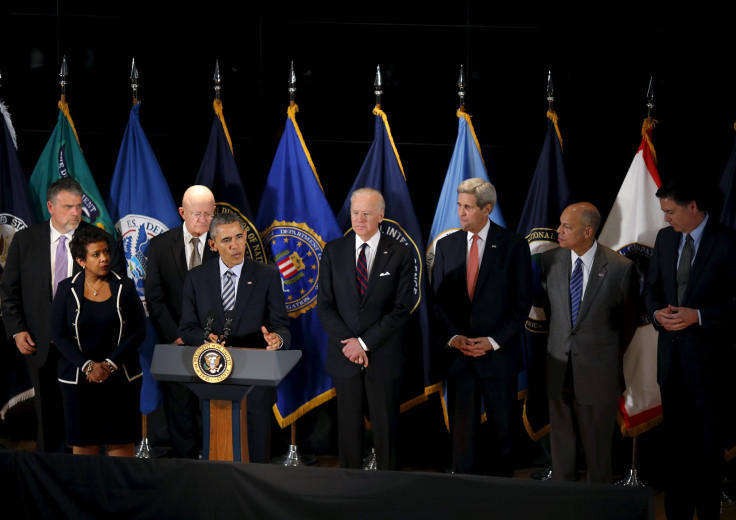Terrorism In The US: Preventing Extremism Is What Most Americans Think Government Should Do More Of, Poll Finds

A majority of Americans think the United States' anti-terrorism policies haven't gone far enough, a Quinnipiac University survey released on Wednesday found. Fifty-nine percent of the U.S. was concerned the policies "have not gone far enough to adequately protect the country," according to the poll.
Meanwhile, 29 percent were worried that the government had gone too far "in restricting the average person's civil liberties." The poll focused on issues related to terrorism and national security was conducted just two weeks after the mass shooting in San Bernardino, California when a married couple killed 14 people.
The poll found a divide along party lines concerning the country's anti-terrorism policies. Seventy-six percent of Republicans worried the government had not gone far enough. On the other side of the aisle, Democrats were split, 45 percent worried about security while 37 percent were concerned the U.S. had gone too far.
Those around the age of the so-called millennial generation, ages 18-34, was the only age bracket in which a majority expressed concern that the government had gone too far with its anti-terrorism policies. The poll found people 65 and older represented the highest percentage who felt the government has not gone far enough at 69 percent.
A majority of U.S. does not want to allow Syrian refugees in the country. Fifty-one percent opposed accepting refugees, while 43 percent said they would not. There was a dramatic divide along party lines on the issue, with 82 percent of Republicans opposing allowing refugees in the U.S., while 74 percent of Democrats supported the idea. Most Americans opposed however, by a margin of 66 percent to 27 percent, the idea from GOP presidential front-runner Donald Trump to ban all Muslims.
Security has increasingly become a concern for Americans on the heels of the San Bernardino shooting and following the Nov. 13 attacks in Paris that killed 130 people and for which the Islamic State group, also known as ISIS or ISIL, claimed responsibility.
Fifty-four percent said they felt U.S. President Barack Obama was not taking the threat of ISIS seriously enough, while 44 percent said he was taking it seriously enough. Perhaps predictably, the issue was split decisively along party lines -- 89 percent of Republicans critiquing Obama's attitude toward ISIS and 80 percent of Democrats supporting the president.
The survey was conducted over the phone from Dec. 16-20, polling 1,140 registered voters nationwide with a margin of error of 2.9 percentage points.
© Copyright IBTimes 2025. All rights reserved.






















